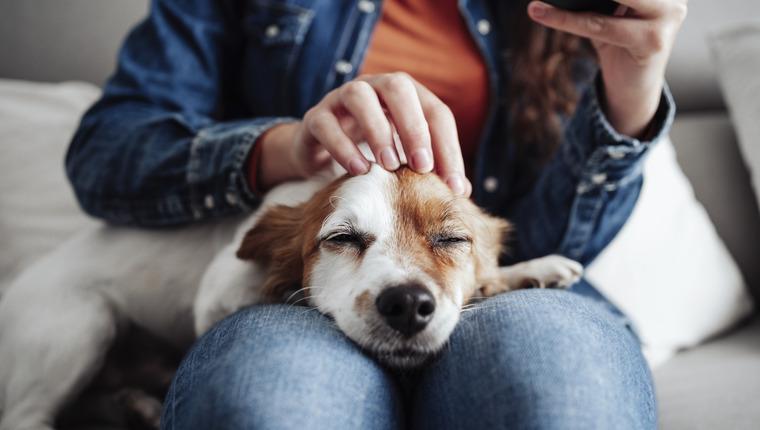
Dogs are man’s best friend, right?
But how did that come to be? It’s something that Anderson Cooper explored on 60 Minutes.
For the feature, the correspondent spoke to a range of experts. These included evolutionary biologist Brian Hare of Duke University, who wrote the book Survival of the Friendliest.
Chromosome Mutations
Bridgett vonHoldt, a geneticist at Princeton University, discovered certain canine chromosome mutations. These make dogs friendlier than wolves to humans. This could go some way to explaining the canine-human bond.
“When we sequenced a bunch of dogs and a bunch of wolves, we already measured their behavior about how social they were, on how distracted they might be with people,” vonHoldt explained to Cooper.
“We used that to then search for mutations in the dog genome that only dogs had and wolves did not have. And we came out with a really nice hot spot of mutations on chromosome number six in the dog genome.”
Lily Gets Involved
Well-known for his love of dogs, Anderson Cooper even got his own Welsh Springer Spaniel, Lily, involved in the segment. vonHoldt sequenced Lily’s DNA. She found that the pup has a typical set of genetic mutations that make her predisposed to interacting with humans. Not only that, but they’re linked to her being hyperactive too.
“She has the genetic predisposition to wholeheartedly love you more than she probably can handle,” vonHoldt told Cooper.
As for Hare, his book explains that over 40,000 years, dogs have gained an understanding of what humans want from gestures and commands. Other research supports these ideas. For example, one study found that 70% of dogs yawn when their owners yawn, something that indicates empathy.
Another found that dogs might be able to tell when their owners are snubbed by someone, and this in turn may affect their behavior towards this person.





